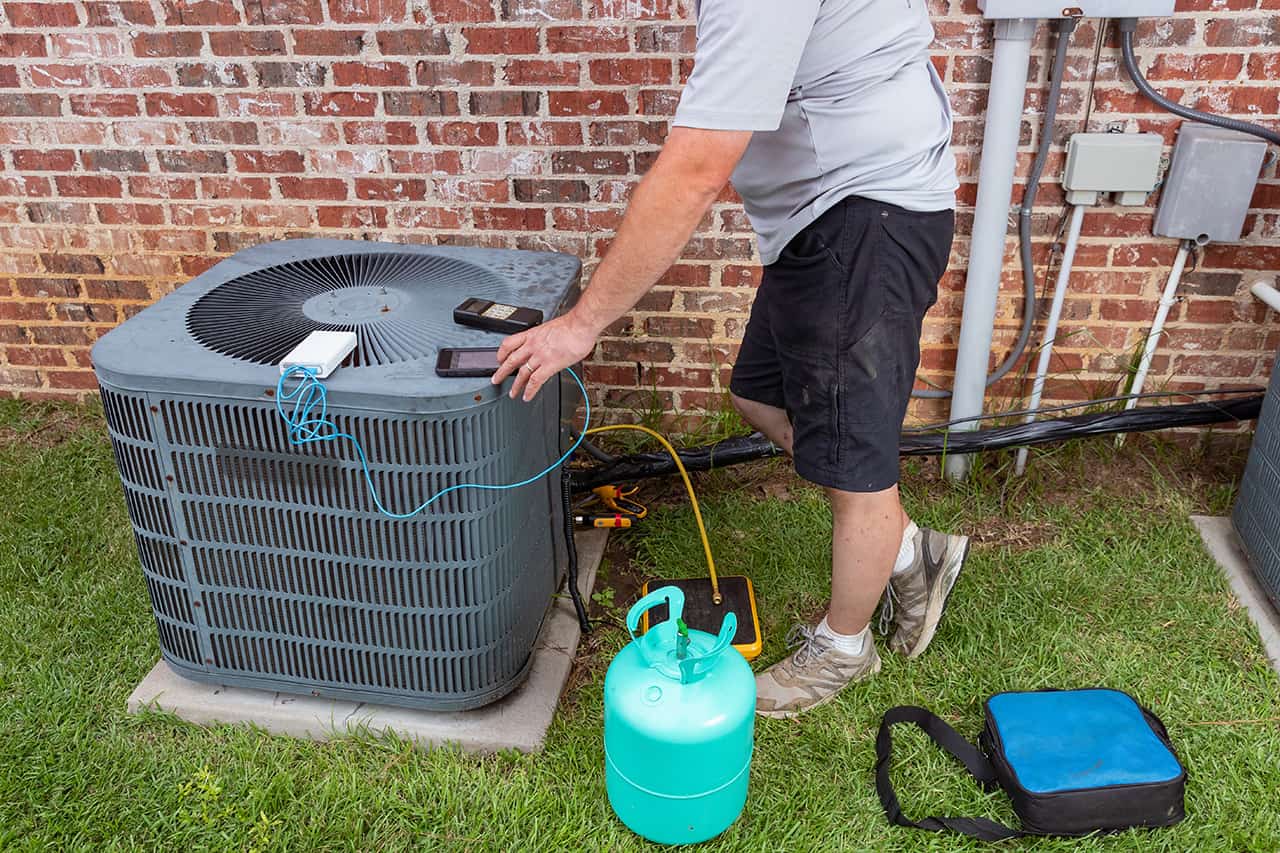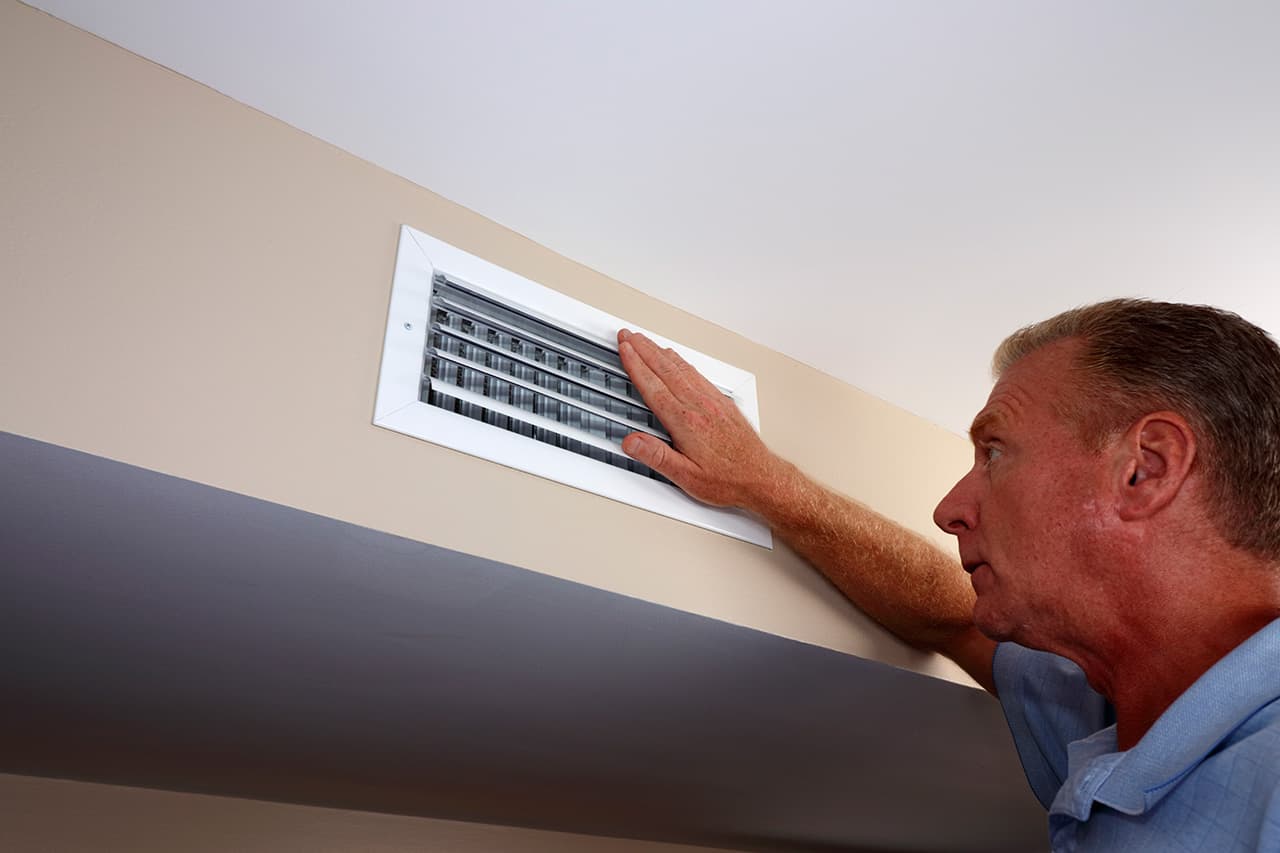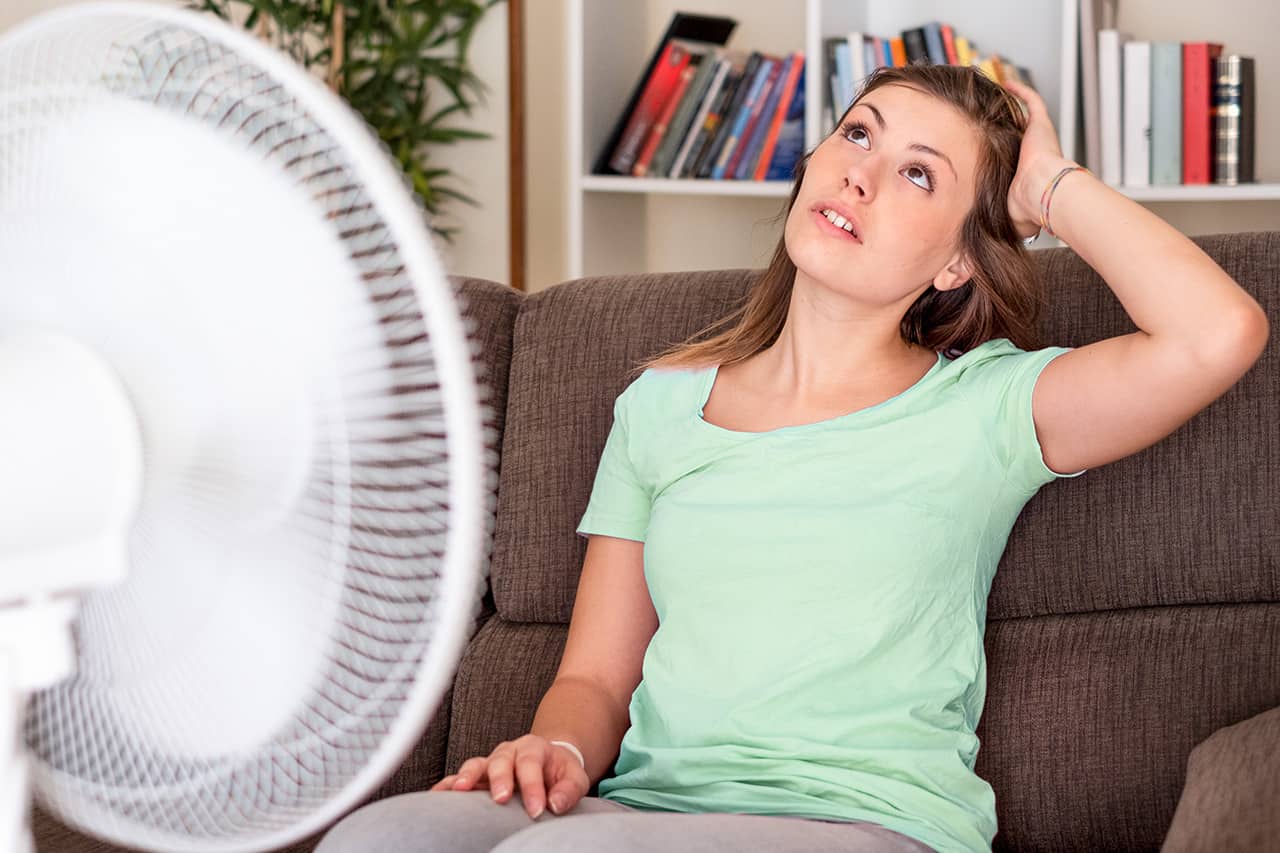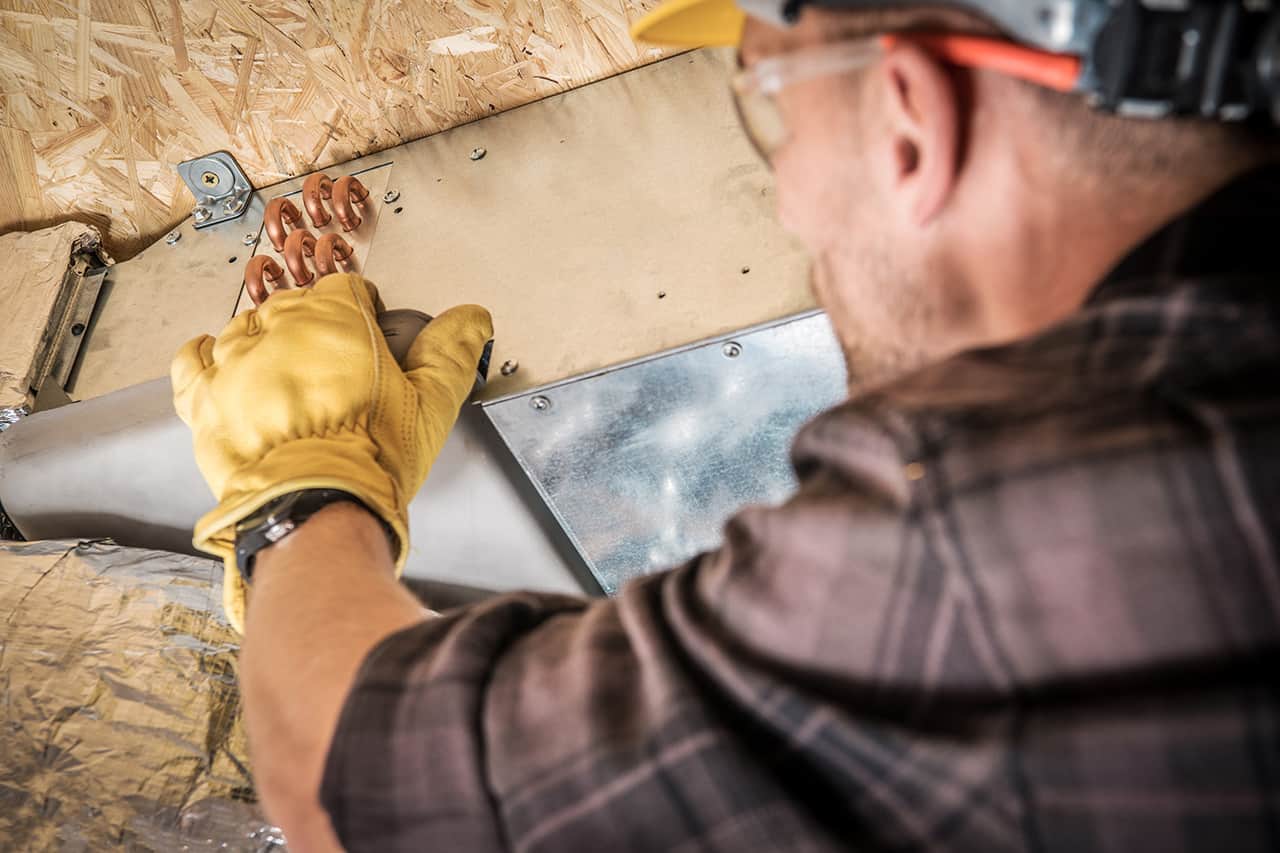
Hey there! Are you having trouble with your air conditioner? Don’t worry, you’re not alone. Many people struggle with common AC problems and it can be difficult to know how to fix them.
In this article, we’ll talk about the top 10 most common AC issues and provide tips on how to troubleshoot them. From clogged air filters and faulty wiring, to low refrigerant levels and poor airflow, we’ve got you covered!
So let’s get started and take a look at the most common AC problems and their solutions.
Clogged Air Filters
Clogged air filters can be a real pain – they can reduce airflow and cause your system to run inefficiently. A dirty air filter is the number one reason for AC problems, so it’s important to check and replace your air filter routinely.
The dirtier the air filter, the more restricted the airflow becomes, resulting in higher energy bills as your unit has to work harder than necessary. Taking a few minutes to inspect and replace dirty air filters regularly will help keep your AC running smoothly and efficiently.
Noticing early warning signs like weak airflow or strange noises coming from the unit can help you identify potential issues before they become major problems. Unfortunately, many homeowners don’t realize that their clogged air filters are causing these issues until it’s too late.
It’s always best practice to inspect and clean or replace your air filter on a regular basis so you don’t end up with an expensive repair bill down the line.
The bottom line: If you want your AC unit to perform optimally, make sure you take care of its most important component – the air filter! Cleaning or replacing them regularly will help ensure that your AC is running at peak performance levels all summer long.
Moving forward, keeping an eye out for any suspicious signs or sounds coming from your unit should be part of your routine maintenance schedule as well.
Faulty Wiring
If you’re experiencing a power outage, it’s likely due to faulty wiring in your system – like electricity running through tangled strings.
Faulty wiring in electrical systems can cause electric control failure and is one of the most common AC problems. If you suspect there is a fault in the wiring of your air conditioner, check for any frayed wires or exposed connections that could be causing an issue. You should also take note of any strange noises from your AC unit as this could indicate faulty wiring as well.
Taking these steps will help you identify and fix the electrical problem quickly; otherwise, it can affect your electricity bill in the long run.
In order to troubleshoot faulty wiring further, consult with a professional electrician who has experience dealing with residential and commercial electrical systems. An experienced professional will be able to assess the situation accurately and provide appropriate solutions.
Additionally, they can help install new components if needed, test all connections properly and offer advice on how to maintain the proper functioning of your AC unit going forward.
You may also want to consider investing in an energy-efficient model which uses less energy than traditional models and reduces costs associated with electricity bills over time – saving you money while helping conserve energy resources at the same time!
With proper maintenance, inspecting for faulty wiring regularly and taking necessary precautions when operating your AC system, you’ll be able to keep cool all summer long without worrying about electrical issues arising again anytime soon.
To avoid low refrigerant levels next time around though, make sure not to neglect regular maintenance checks for your air conditioner.
Low Refrigerant Levels

Refrigerant levels that dip too low can cause your air conditioner to struggle, leaving you sweltering in the summer heat. To avoid this common AC problem, it’s important to familiarize yourself with the parts of your system and their associated refrigerant levels.
It all starts with understanding how a refrigerant leak can occur and what needs to be done when one does. Refrigerant leaks can be caused by several factors, including an evaporator coil that has exceeded its expected lifespan, loose connections in the AC unit, or even normal wear-and-tear over time.
Knowing what to look for and regularly maintaining your AC system are key components of preventing these types of leaks from occurring in the first place. Once a refrigerant leak has been identified, adding more refrigerant is usually necessary—however, only a trained professional should perform this task due to the potential dangers associated with handling certain chemicals.
Furthermore, it’s essential to address any underlying issues leading up to the initial leak before adding new refrigerant so that it doesn’t happen again down the line. Taking proactive steps such as scheduling regular maintenance checks on your AC system can go a long way towards reducing costly repairs associated with low refrigerant levels in your air conditioner.
Transitioning into preventive measures for leaking refrigerants will help ensure that you don’t experience any future issues with your air conditioning unit during those hot summer months.
Leaking Refrigerant
Leaking refrigerant can be a sign of deeper issues with your air conditioner, so it’s important to take the necessary steps to identify and address them quickly. A refrigerant leak can cause a myriad of problems like a tripped circuit breaker, frozen evaporator coil, compressor failure or even a thermostat malfunctioning. It’s important for homeowners to perform regular maintenance checks on their air conditioner system in order to detect any potential leaks before they become an issue.
To identify if you have a refrigerant leak, look for ice around the indoor unit or feel for cold spots coming from the vents. If there is no visible sign of leaking refrigerant, you should also check the pressure levels of your system as low levels could indicate that some has already been lost through leaks in the system.
The first step in repairing any kind of refrigerator leak is to locate it and repair or replace whatever component may be causing it. This might involve inspecting all connections and valves throughout your AC unit, replacing worn out gaskets or simply tightening loose fittings with wrenches and pliers. If you’re unable to find the source of the leak yourself, it’s best to contact an experienced HVAC technician right away as they’ll have the tools and expertise needed to properly diagnose and fix any underlying issues with your AC system.
Once you’ve identified and repaired any leaking components, refill your air conditioning unit with fresh refrigerant according to manufacturer specifications so that all parts are adequately lubricated and cooled again. With proper maintenance checks performed regularly and timely repairs done when needed, you can rest assured that your AC unit will continue running smoothly for many years.
Poor Airflow

Poor airflow from your air conditioner can be a sign of deeper issues and can reduce the efficiency of your system by up to 25%, making it important to identify and address them promptly.
To ensure that your AC is operating at peak efficiency, you should:
- Check the air filters for dirt or dust buildup that could restrict airflow.
- Make sure the blower motor is running properly, as this will determine how much air is blown through the AC.
- Make sure the AC and blower fans are working correctly.
If any of these components are not functioning properly, it can cause poor airflow from your AC unit. It’s also possible that there may be an issue with a duct or vent in your house, so if you cannot find a problem with any of these components, then it’s best to call in an expert for help.
Taking proactive measures like cleaning or replacing dirty filters regularly can help prevent poor airflow from becoming an issue in the first place.
Inspecting all parts of your AC regularly and taking swift action when necessary will help ensure that you have efficient, reliable cooling during those hot summer months!
Moving on to another common issue – faulty thermostats – we’ll explore what signs indicate they need servicing, how they work, and solutions for fixing them…
Faulty Thermostat
You’ve already taken steps to troubleshoot poor airflow in your AC system, and now it’s time to move on to the next potential problem: a faulty thermostat.
A malfunctioning thermostat can be one of the most common causes of AC problems, as it is responsible for controlling when and how long your air conditioning runs. A faulty thermostat may be the issue if your air conditioner is running without cooling your home or turning off when not needed.
The first step in diagnosing a faulty thermostat is to check its power source; if you have battery-powered units, make sure they are installed correctly and have fresh batteries.
You should also ensure that all electrical connections are properly connected, and there are no bare wires that could cause a short circuit. Additionally, check the wiring between the AC unit and the thermostat; if any connection has become loose, you should tighten them securely.
Finally, inspect indoor and outdoor sensors for any signs of damage like dirt build-up or corrosion which could affect their accuracy of readings.
If all these procedures don’t improve performance, then you may need to replace some parts, such as the thermostat itself or its settings. Check your owner’s manual for instructions on resetting or adjusting certain settings before replacing them, as this can often fix issues with incorrect temperatures being read by the thermometer sensor.
With all these tasks done, you should now be able to diagnose whether a faulty thermostat was causing your AC problems!
Moving forward, we’ll look at another possible cause – a clogged drainage line – so let’s get started!
Clogged Drainage Line
When your air conditioner isn’t running as efficiently as it should, a clogged drainage line could be the culprit. A clogged drain line can cause problems with water buildup and improper draining, which can stress other parts of the system.
To troubleshoot this issue, you should check:
- The drain pan for any debris or blockages
- The condensate drain pipe to make sure it’s connected properly
- Inspect any connections between the drain pan and drain pipe for leaks or loose parts
- Check if any components are blocked or need to be replaced according to your user manual
- Clean out the entire unit in case of mold buildup from water damage
Regular maintenance is key to ensuring that your air conditioning system runs optimally. If you’re unable to diagnose and resolve the issue yourself, contact an HVAC technician for help.
It’s also important to keep up with regular cleaning and inspections so you can spot these issues before they become major problems. Taking these steps now will keep your AC running smoothly for years to come without risking expensive repairs down the road.
To prevent future drainage issues, check all components regularly and clean them when necessary. Doing so will help ensure your air conditioner continues working at its best performance while avoiding costly repairs due to clogged drainage lines.
With that in mind, let’s move on to discussing how blocked air vents can affect your AC system…
Blocked Air Vents
It’s important to keep an eye out for blocked air vents, as they can greatly reduce the efficiency of your air conditioning system. When your air conditioner isn’t running efficiently, it can cause problems like higher energy bills and poor cooling performance.
Blocked air vents are one of the most common issues homeowners face with their air conditioners. When the vents become blocked by furniture or dust buildup, it prevents the conditioned air from circulating throughout your home properly. This can harm both the efficiency and effectiveness of your system.
If you suspect your air vents may be blocked, it’s important to check them immediately and take steps to unblock them if necessary. First, check all around your home for any objects obstructing airflow near a vent inlet or outlet.
If there is something blocking airflow near a vent, move it away from the area or clean up any dust and debris that may have been collected on the grille or inlet/outlet opening itself. You should also replace clogged or dirty filters on a regular basis to ensure proper airflow through your unit; this will help prevent blockages from forming in the future too!
In addition to clearing away physical blocks from around your vents, you should also take preventive measures such as regularly vacuuming all floor registers and keeping furniture away from them when possible.
Regular maintenance of air filters is also key for avoiding major blockages over time – simply by changing out these components every few months, you can drastically extend the life of your system and reduce potential repair costs down the road!
Frozen Evaporator Coils
Watch out for frozen evaporator coils – a nightmare scenario that can make your air conditioner feel like it’s been turned into an ice palace!
Evaporator coils, located in the indoor unit of an air conditioning system, provide the cooling power that makes your home comfortable in hot weather. When they become frozen, the normal operation of the air conditioner is disrupted, and troubleshooting is often necessary.
If you believe that your evaporator coils have become frozen, contact a certified HVAC technician who’ll be able to quickly diagnose and repair any issues with the condenser fan motor or other components of the system.
To prevent this issue from occurring in the first place, homeowners should change their air filters on a regular basis and check for any signs of blockage or obstruction in their ducts and vents. Additionally, it’s important to schedule regular maintenance from a qualified HVAC technician so that potential problems can be identified early on before becoming serious issues. This proactive approach will help ensure maximum efficiency from your air conditioner while reducing energy costs each month.
The best way to avoid costly repairs due to frozen evaporator coils is through preventative maintenance. Regularly cleaning and inspecting all parts of your air conditioning system will minimize the risk of these issues arising at and keep your home cool during even the hottest summer months.
Compressor Issues
Malfunctioning compressors can wreak havoc on your air conditioning system, so it’s important to be aware of the signs and take action quickly. If you hear a loud noise coming from your compressor, this is an indication that it has become damaged or defective. It may also be accompanied by a burning smell or smoke, both signs that the electrical parts need to be inspected immediately.
In order to diagnose compressor issues accurately, contact an experienced air conditioning services company as soon as possible. Once the issue has been identified, the technician will replace any defective components, such as the fan motor or control panel. Depending on how severe the damage is, they might even recommend replacing the entire unit if necessary.
Another common problem with compressors is that they can stop working altogether due to blockages in the system or overheating of its internal components. It is important to recognize and address these signs quickly before further damage occurs. It’s always best practice to get regular maintenance done on your air conditioner to avoid costly future repairs.
A good service provider should check all electrical parts and inspect for any potential problems while providing advice on keeping your system running smoothly for longer periods. Don’t ignore compressor issues – taking proactive steps now can save you from having bigger problems down the road!
Conclusion
You’ve now learned some of the most common air conditioner problems and how to troubleshoot them. With these tips, you can diagnose and care for small issues before they become bigger problems.
Just remember to stay safe when working with electricity or refrigerant. If you ever feel uncomfortable about tackling an issue yourself, always call a licensed HVAC technician for assistance.
Taking good care of your air conditioner will ensure it runs as efficiently and effectively as possible for years to come!




